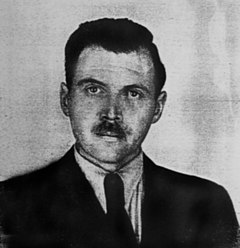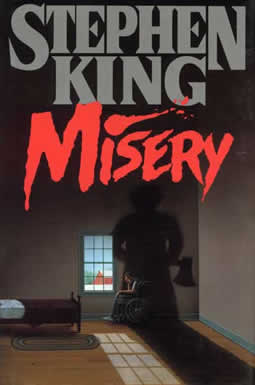So I’m sitting in the break room at work trying to read but there’s a really gripping show on the History channel. It’s a special on Nazi technology. And then I got my idea for the real psycho to blog about for my Readings in the Genre class. And no, it’s not the obvious Adolf Hitler. No, I’m blogging about the horrible Josef Mengele, the doctor from Auschwitz, nicknamed the “Angel of Death” and user of many aliases to elude capture. The filth that never was punished for his crimes. As though his experiments aren’t bad enough, he died never having remorse or regret for what he did and insisting that he “had never personally harmed anyone in his whole life.” (quote from his son in an article in wikipedia) That to me is the definitive qualification for a psycho.
Josef Mengele experimented heavily on twins in the Auschwitz camp. He apparently was a hereditary biologist before the Nazi regime and was given the power as the camp doctor to do what he wanted. He’d separated the twins out from the masses heading for the chambers and be nice to them and give them candies. And then the next moment shoot and dissect them while their bodies were still warm. Or working on them while they were alive without giving them any anesthesia. We’ve read some pretty gruesome things in this class, but Mengele takes the cake. He’s truly what nightmares are made from. I won’t scar you all with the details of his human experiments. But it goes back to a theme I’ve seen discussed by classmates a number of times now. It’s frightening what a person can do when given unlimited power and authority over others.
This guy just makes my skin crawl. I read about a number of real serial killers and others for this class. But there’s just something about this guy that feels so much worse than most. I just don’t understand how someone can be “nice” to the kids one second and then so brutal the next. The best explanation I can come up is that he really, truly, believed that they weren’t humans at all. Nothing more than blades of grass.
Throughout this class I’ve tried to find something of value to take from the real and fictional stories. More than just what I can learn about the craft of writing. My wife is always trying to help me see what positives can come out of such destruction. That was kind of the tone of the afore mentioned special on the History channel. No question, the Nazi regime was horrible. But the special focused on the advancements for all of humanity in the form of science and technology. Recording devices leading to our DVDs, or weapons leading to the jet engine and rocket technology to name a few. The best I can come up about Mengele is that the rest of the world can be warned about giving someone too much power. But I’m sorry, that’s not enough. It’s disgusting that one, there are people in the world who think they can get away with anything, and two, that so many of them have gone unpunished. Or unpunished for a while before getting caught. Or getting caught but able to live a quiet life in prison instead of being punished the way they should be. Oh, wait, that doesn’t sound Christian does it. Well, on this point I refuse to back down.


